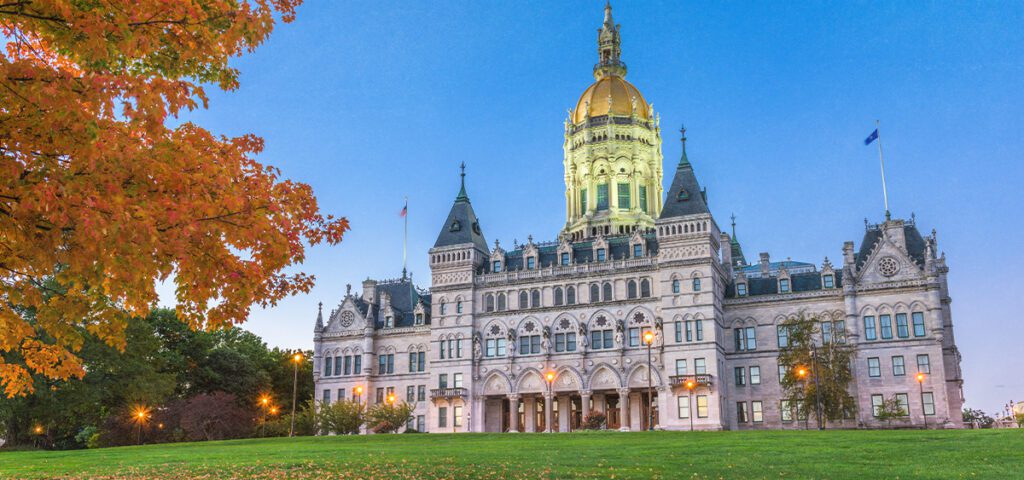Connecticut regulators said three of the state’s four medical cannabis producers have finished converting to a hybrid adult-use license and that sales should launch by early next year.
Connecticut Cannabis Sales Launch Expected Early Next Year

Full story continued below.
Advertisement
Connecticut cannabis regulators notified three medical cannabis producers last week that they have taken the necessary steps for converting their cannabis production licenses into hybrid licenses fit for serving both the medical and adult-use industries, the Connecticut Department of Consumer Protection (DCP), which regulates the industry, said in a press release.
“The Department’s priority is to have a safe, well-regulated marketplace for consumers. I am grateful to the Drug Control and Legal teams at DCP who have worked — and continue to work — tirelessly, since the passage of the law, toward a safe and successful market opening.” — Connecticut Department of Consumer Protection Commissioner Michelle H. Seagull
State law requires the licensing of at least 250,000 square feet of growing and manufacturing space before Connecticut’s adult-use sales can begin. To satisfy the threshold, regulators must either award hybrid licenses to all four of the state’s current medical cannabis producers or approve an additional cultivator. The state anticipates the launch of adult-use sales by early next year.
The following three cannabis production companies have completed the license conversion:
- Advanced Grow Labs LLC
- Connecticut Pharmaceutical Solutions LLC
- Curaleaf LLC
Additionally, the following seven medical cannabis dispensaries were notified that they had completed the steps for converting to a hybrid retail license:
- Affinity – New Haven
- Bluepoint Wellness of Connecticut – Branford
- C3 Torrington (Still River Wellness) – Torrington
- FFD Newington – Newington
- FFD Stamford – Stamford
- FFD Willimantic – Willimantic
- Willow Brook Wellness – Meriden
Connecticut lawmakers approved the state’s adult-use cannabis reforms in June 2021. Since then, regulators have crafted rules for the new industry, hired 38 people to help stand up the industry, and established social equity licensing opportunities for individuals who were disproportionately harmed by cannabis prohibition.
Get daily news insights in your inbox. Subscribe
End